These are the seven tribes of Brexit - and what they want
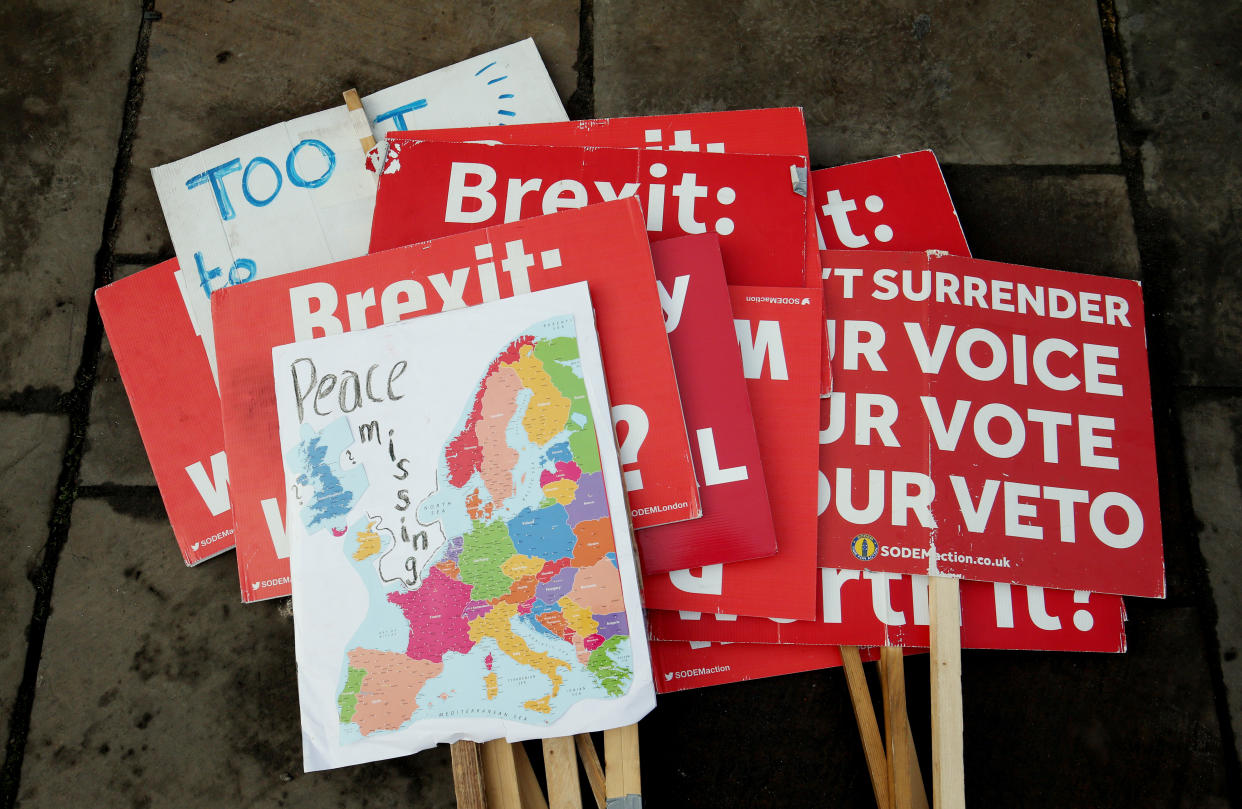
Yesterday’s annihilation of Theresa May’s Brexit deal, which saw the Prime Minister lose by a record-breaking margin of 230 votes, was an undeniable indiction that MPs do not support the Withdrawal Agreement she negotiated with the EU.
However the vote did not give any indication of the sort of Brexit that politicians actually do want.
On one side Remainers clamour for a second referendum that could overturn the result of the first, while, on the other hard, Brexiteers advocate a no-deal Brexit that would see the UK leave without an agreement in place.
Others in the middle have their own ideas of how Brexit ought to look.
These are the seven main Brexit tribes – and what they actually want.
1. Renegotiated deal
Even after her deal was roundly rejected by Parliament, Theresa May and her Cabinet continue to insist that her approach is the best one.
After conceding that the Commons ‘does not support this deal’, the Prime Minister appealed for cross-party talks in an attempt to tweak the current agreement to make it palatable to politicians.
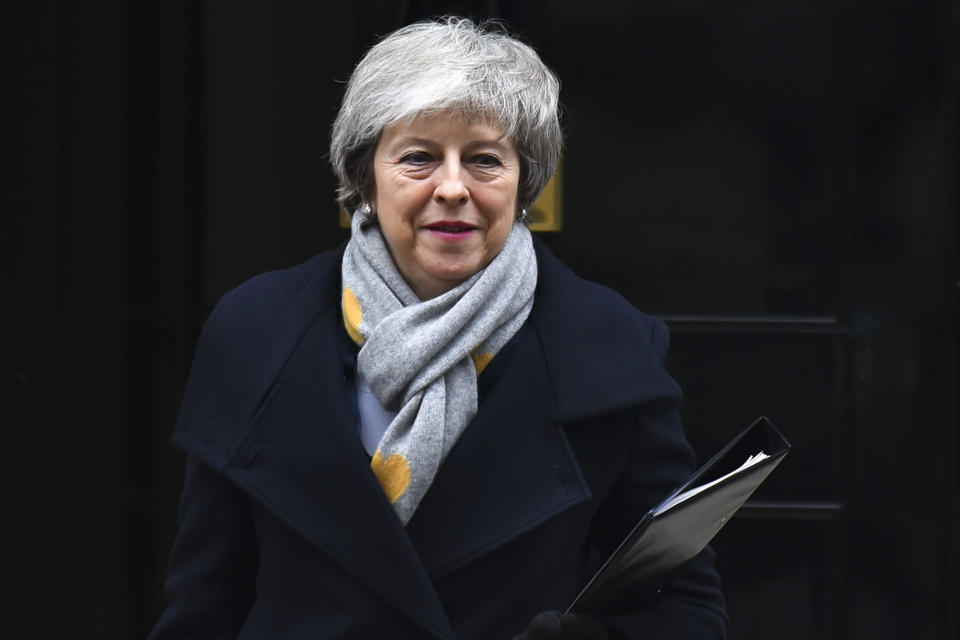
Mrs May intends to head back to Brussels after talks in an attempt to secure concessions, particularly on the contentious ‘Irish backstop’ arrangement.
However the EU’s Brexit negotiator Michel Barnier said that the EU will only rethink the deal if Mrs May budges on her Brexit ‘red lines’ – something she has insisted she will not consider.
The scale of the defeat could also indicate to the EU that even a renegotiated deal has no hope of making it past MPs, making them less likely to offer up a compromise.
Second referendum
As the Brexit deadlock tightens, the campaign is stepping up to hold another referendum on EU membership.
The People’s Vote movement, led by Labour’s Chuka Umunna, insists that Mrs May’s deal is not what was promised during the Brexit referendum campaign and that no deal would be disastrous for Britain.
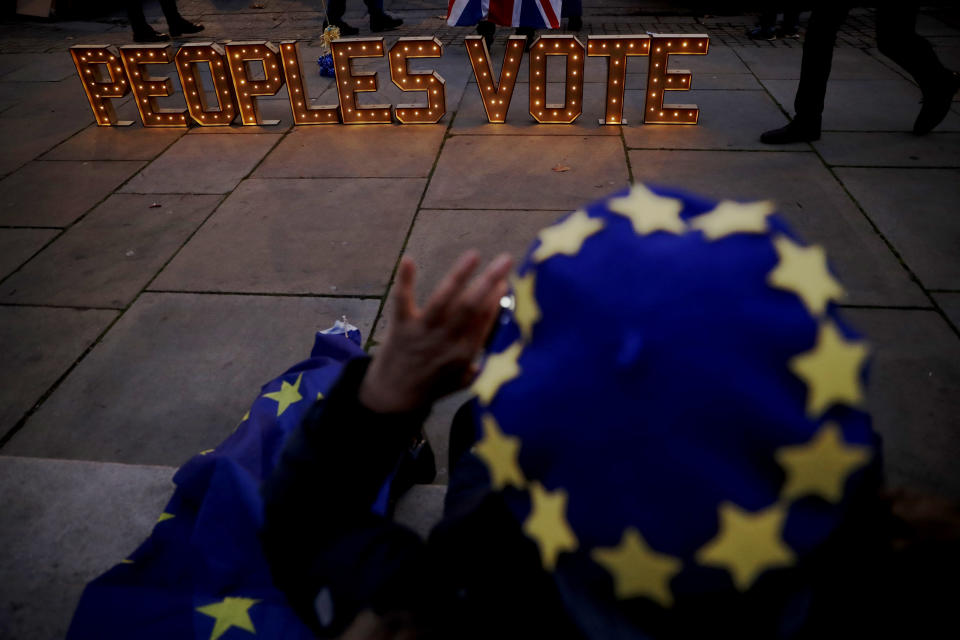
Despite pressure from the Labour back-benches – 71 Labour MPs publicly backed a second vote on Wednesday – Jeremy Corbyn has resisted supporting another referendum and the PM has repeatedly said she will not support the idea.
Critics argue that another Brexit vote would be undemocratic and likely to deepen existing divisions.
Delaying Brexit
With the Brexit deadline looming ever closer, more politicians are urging Mrs May to delay Brexit by extending Article 50.
SNP leader Nicola Sturgeon has called on the PM to extend Article 50 to allow more time to break the stalemate, and Labour’s Yvette Cooper responded to the Brexit deal defeat by demanding an immediate extension.
Theresa May has softened her stance on delaying Brexit in recent delays, shifting her tone from saying she would refuse to do so to saying that she does not believe it is the right thing to do.
The EU would also have to agree to an extension, as British cannot do so without their approval.
General Election
Jeremy Corbyn yesterday tabled a motion of no confidence in Theresa May’s Government in an attempt to trigger a General Election.
The Labour leader says, if elected, he would reopen negotiations with the EU and try and negotiate a withdrawal agreement that includes a customs union and single market.
The scenario is unlikely to come to pass as the Prime Minister is expected to win the vote of no confidence in her Government, as Tory rebels and the DUP all intend to back her.
No deal
Hard Brexiteers including Jacob Rees-Mogg argue that Britain should be prepared to leave the EU without a deal on 29 March.
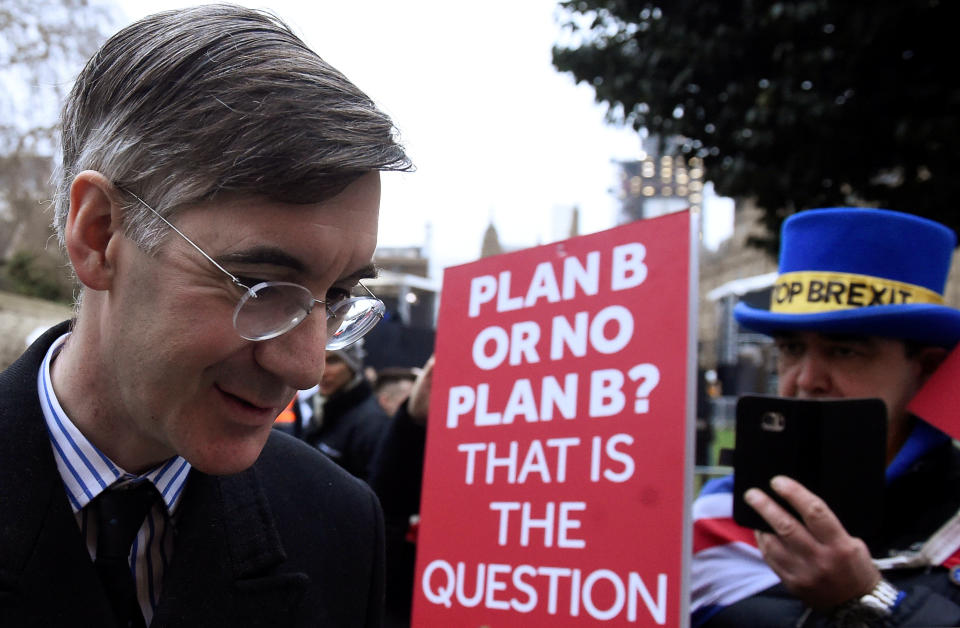
The Government’s own economic forecasts predict that leaving without a deal could cause the UK economy to shrink by up to 9.3% and could result in shortages of food and medicines.
Brexiteers dub these predictions ‘project fear’ and insist the fallout would not be as bad as the Government says.
A vote in Parliament limited the Government’s no-deal powers, indicating that this approach does not enjoy the support of MPs, and Conservative ministers have put it on the record that they would resign if Mrs May were to actively pursue a no-deal exit.
Canada+++
Boris Johnson and David Davis are among the Brexiteers pushing for a ‘Canada+++’ deal, meaning a free trade agreement based on the one between Canada and the EU but with some additional extras.
Mr Johnson repeated his pitch for Canada+++ after Mrs May’s humiliation on her Brexit deal, saying that the EU had been offering this ‘all along’.
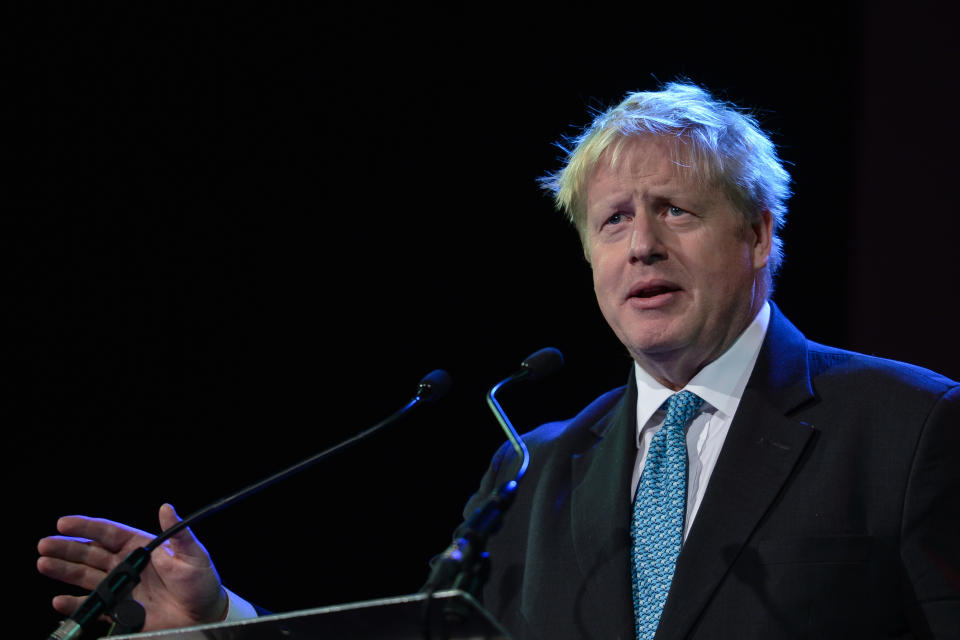
This is true – although there is more to it than Brexiteers admit. The EU’s Canada+++ offer does not involve a customs union or single market and so does not solve the Irish border issue.
This means it would involve the same Irish backstop contained in Mrs May’s deal or a sea border between Northern Ireland and the rest of the UK, essentially amounting to a break-up of the union.
The EU’s deal with Canada also does not cover services, which makes up 80% of the UK’s economy.
Norway
The ‘Norway model’ is an option being increasingly touted as it becomes ever more apparent that MPs will not stomach a hard Brexit.
It represents a so-called ‘soft Brexit’ option, keeping the UK closely tied to the EU without being a member, while allowing Britain to strike external trade deals with other countries.
The Norway model would keep Britain in the single market, allowing frictionless trade and solving the Irish border issue, but would involve the UK accepting rules from Brussels, continuing payments to the EU and keeping free movement of people.

 Yahoo Movies
Yahoo Movies 

